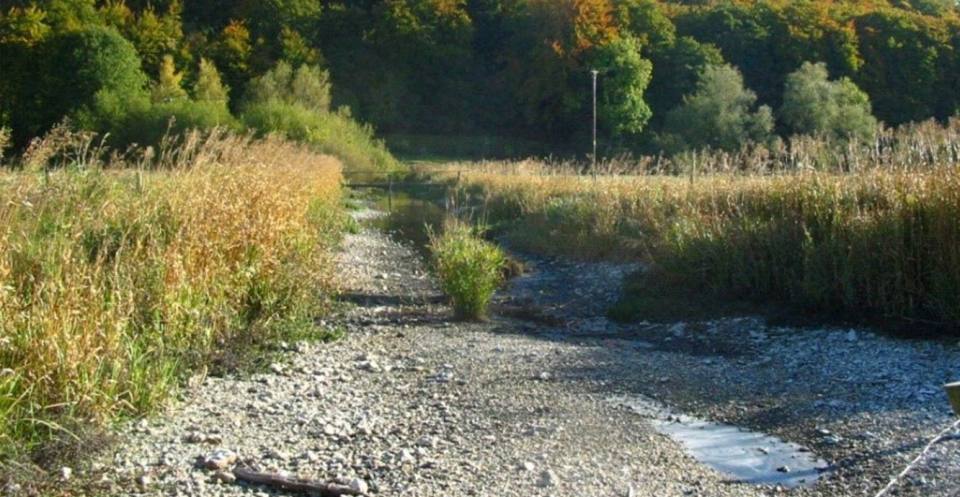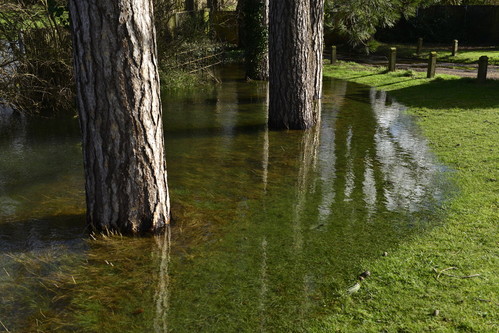We are researching groundwater extremes, the effects of environmental and climate change on groundwater in the UK and internationally, and what these mean for building a more resilient future for our water resources.
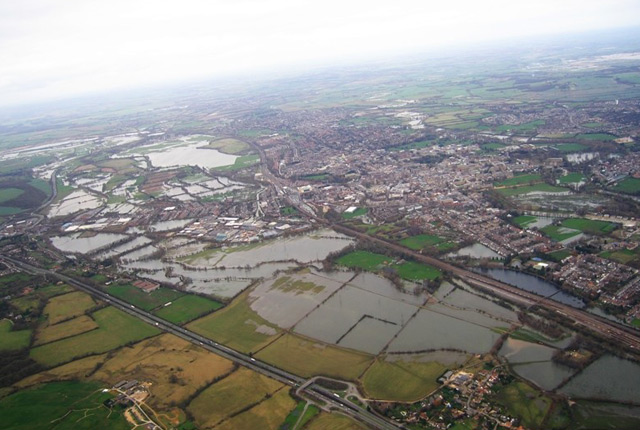
Aerial view of flooding of Oxford in 2007. © NERC/UKRI.
Our research includes quantifying and predicting groundwater extremes (floods and droughts) and improving evidence and understanding of the effects of environmental change on groundwater resources and quality, particularly under the extremes of floods and droughts. The research is focused on the UK and globally in areas of existing or potential future water resource and quality stress, such as sub-Saharan Africa, India and South-east Asia.
We work closely with a wide range of partners both in the UK and internationally to ensure that our research helps them to improve planning and management of water resources, from community to national scale.
Groundwater extremes
Groundwater is affected by extremes in the weather. Periods of abnormally high rainfall can result in groundwater flooding of basements and the emergence of groundwater at the ground surface, causing damage to property and infrastructure.
Conversely, groundwater levels fall during prolonged periods of dry weather. There is less flow of groundwater to surface streams and wetlands and less groundwater is available for abstraction for use in public supply, for farmers for irrigation, and for industry.
In parts of sub-Saharan Africa, groundwater droughts in extreme cases can lead to failure of crops and loss of access to drinking water.
Groundwater flooding is defined here as the emergence of groundwater at the ground surface away from perennial river channels, or the rising of groundwater into artificial ground, under conditions where the ‘normal’ ranges of groundwater level and groundwater flow are exceeded. Groundwater flooding events are relatively long compared with fluvial (river) flooding.
The effects of groundwater flooding can occur before water levels reach the ground surface, when there is flooding of building basements and buried services or other assets below ground level. Groundwater levels that rise above ground have the potential to reach low-lying areas protected from fluvial flooding.
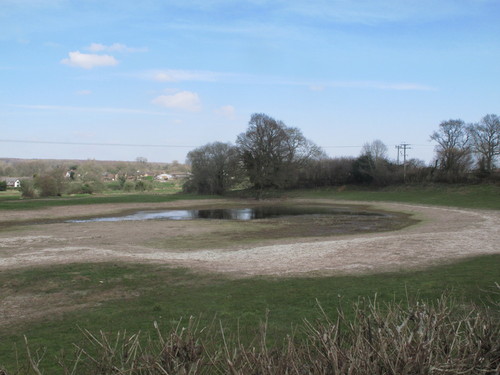
Exceptionally large flows from perennial springs or large flows from intermittent or dormant springs, which also come under the above definition of groundwater flooding, can cause both localised flooding in the vicinity of the springs and down gradient where surface water drainage channels may not be adequate.
Groundwater flood research
Our scientists are at the forefront of research into groundwater flooding. Current and recent initiatives include:
- publication of the first groundwater flooding susceptibility mapping for the UK
- analytical tools to understand groundwater flooding timing and distribution
- detailed, process-based studies of controls on groundwater flooding and the interaction of natural and built environments with groundwater flooding, e.g. Oxford case study and the LANDWISE natural flood attenuation case study
Groundwater drought is the sustained and extensive occurrence of below-average availability of groundwater. Aquifers in the UK are usually replenished with water during the winter months, so groundwater droughts may develop if there is reduced rainfall over one or successive winters.
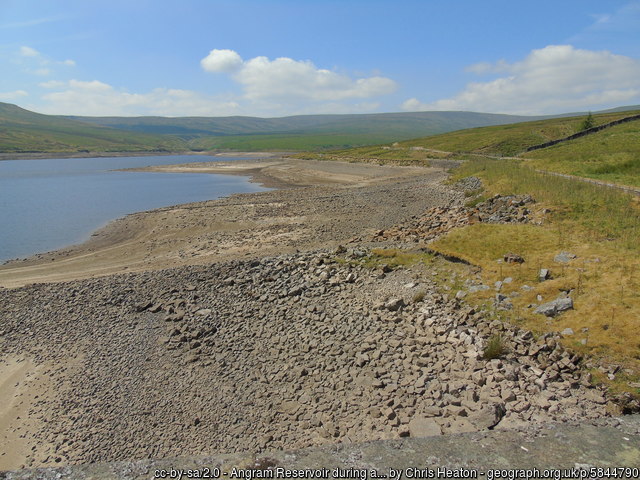
Groundwater droughts are marked by lower than average water levels in aquifers, borehole and wells, and by reduced flows to groundwater-fed rivers and wetlands. They can be made worse by high demand for water during unusually hot or particularly dry summers.
We are working to better understand how groundwater droughts occur and the effects they have on humans and the environment.
In developing countries, where communities are particularly reliant on groundwater, groundwater droughts can cost people their livelihoods and even their lives.
Groundwater drought research
We have been researching groundwater drought in the UK and internationally for decades. Or recent and current work is focused on a number of themes:
- We are reconstructing groundwater droughts in the UK since the 1890s, to understand them and provide a historic perspective for assessment and modelling for future droughts.
- We undertake research into how much groundwater is stored in the UK’s main aquifer, the Chalk, and how this varies under drought.
- We are leading the European Groundwater Drought Initiative (GDI), a collaborative project with the University of Birmingham, to develop methods to model groundwater drought status across Europe, to investigate the effects of groundwater drought on the environment and society across Europe, and to build a research community to grow our understanding of the phenomenon of groundwater drought. We are actively seeking partners to contribute to the GDI.
- Through a series of DFID- and NERC-funded projects, we are working with a wide range of partners to understand how groundwater droughts in Africa affect the livelihoods of people who are dependent on groundwater. In particular, our work has highlighted the importance of the links between availability, access and demand for groundwater during droughts.
Groundwater and environmental and climate change
Environmental change and climate change form the context for most of our groundwater research both in the UK and internationally. Here we take ‘environmental change’ to mean decadal and longer-term natural or anthropogenic changes in the environment, such as changes in land cover and land use, in soils and wider catchment characteristics. ‘Climate change’ is taken to mean changes on a similar timescale in the climate, such as changes in temperature, precipitation, and extreme weather events.
We are actively investigating a number of specific topics related to environmental change and climate change, including:
- investigating the effect of warming on groundwater droughts in the UK over the last 100 years
- modelling potential changes in groundwater recharge across the UK to 2100
- modelling future climate change effects on groundwater resources in the UK using UKCP18 scenarios (Future Flows 2 case study)
- assessing resilience of groundwater in Africa to environmental change
We undertook the Future Flows project, carrying out a consistent assessment of the effect of climate change on river flows and groundwater levels across England, Wales and Scotland using the UKCP09 probabilistic climate projections from the Met Office Hadley Centre.
Now, along with UKCEH and HR Wallingford, we are extending this study to use the latest UKCP18 probabilistic climate projections from the Met Office Hadley Centre to develop a prototype climate service that will enhance the resilience of the UK water sector to drought events.
Simulated and observed historical groundwater-level time series are being compared using the non-parametric standardised groundwater level index (SGI). The SGI was developed at the BGS as a means of transforming groundwater-level time series into an intuitive, quantitative metric to characterise the duration, magnitude and intensity of groundwater drought.
The SGI is being used to interrogate the model’s ability to capture these different characteristics over historical drought periods in the observation data at each borehole.
Contact
If you want to discover more then please contact Alan Macdonald.
Related news
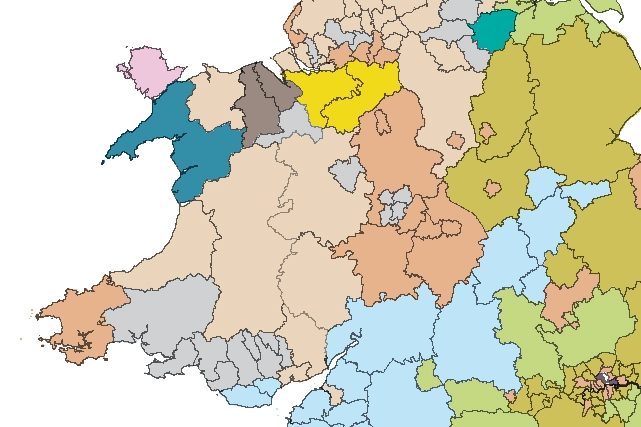
Map of BGS BritPits showing the distribution of worked mineral commodities across the country
18/02/2026
BGS’s data scientists have generated a summary map of the most commonly extracted mineral commodities by local authority area, demonstrating the diverse nature of British mineral resources.

MARC Conference 2025: highlighting the importance of conferences to PhD students
16/02/2026
BGS and University of Nottingham PhD student Paulina Baranowska shares her experience presenting her research on nuclear forensics at her first international conference.

Funding awarded to map the stocks and flows of technology metals in everyday electronic devices
12/02/2026
A new BGS project has been awarded Circular Electricals funding from Material Focus to investigate the use of technology metals in everyday electrical items.

New UK/Chile partnership prioritises sustainable practices around critical raw materials
09/02/2026
BGS and Chile’s Servicio Nacional de Geología y Minería have signed a bilateral scientific partnership to support research into critical raw materials and sustainable practices.

Extensive freshened water confirmed beneath the ocean floor off the coast of New England for the first time
09/02/2026
BGS is part of the international team that has discovered the first detailed evidence of long-suspected, hidden, freshwater aquifers.

Funding secured to help mitigate ground risk in UK construction sector
05/02/2026
The BGS Common Ground project has been awarded new funding to help unlock the value of ground investigation data.

After-school kids’ clubs
Event from 25/02/2026 to 25/03/2026
An after school club for junior geology enthusiasts

Can sandstones under the North Sea unlock the UK’s carbon storage potential?
02/02/2026
For the UK to reach its ambitious target of storing 170 million tonnes of carbon dioxide per year by 2050, it will need to look beyond the current well-studied geographical areas.

Quaternary UK offshore data digitised for the first time
21/01/2026
The offshore wind industry will be boosted by the digitisation of a dataset showing the Quaternary geology at the seabed and the UK’s shallow subsurface.
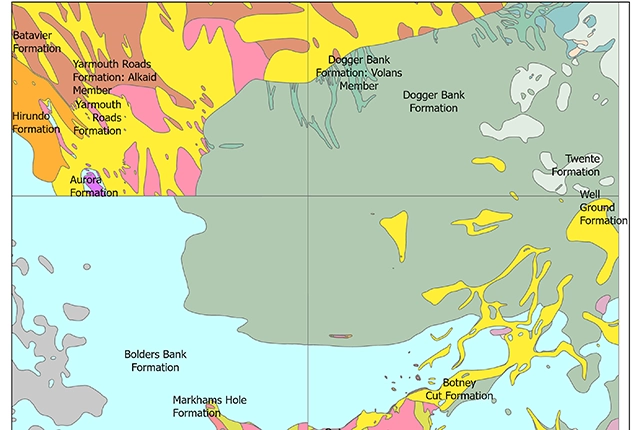
Offshore Quaternary 250K
The 1:250 000-scale offshore geological map for quaternary geology (BGS Geology: marine quaternary 250k) is available digitally.

Suite of ten new soil reference materials released
02/01/2026
BGS has a longstanding track record of producing high-quality reference materials and has released ten new soil reference materials.
You may also be interested in
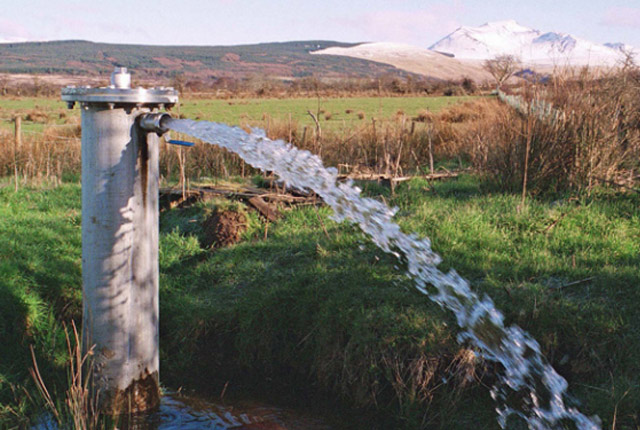
Groundwater resources
Groundwater provides invaluable freshwater for public and private supply, agriculture, industry and recreation across the UK and globally.
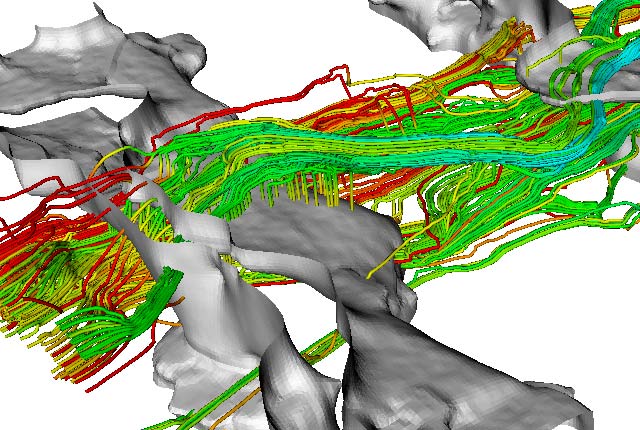
Groundwater modelling
Our modelling research focuses on the development and application of models to improve our understanding of hydrological and groundwater processes

Groundwater challenges in India and Pakistan
We are reconstructing a century of groundwater level records in order to understand the long-term behaviour of groundwater in north-west India and Punjab in Eastern Pakistan.
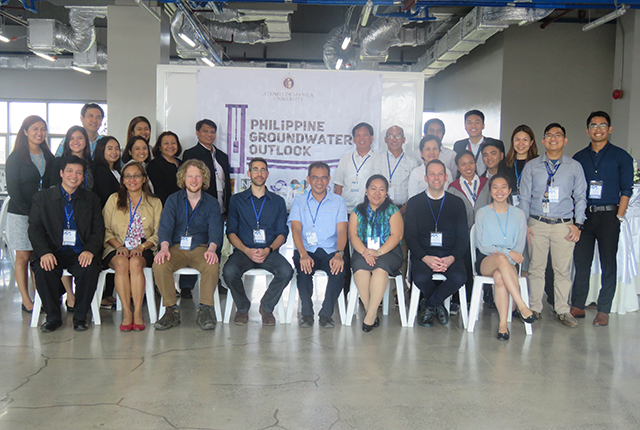
Philippine groundwater outlook
The PhiGO project seeks to undertake assessments of population and climate change impacts on regional groundwater resources and translate these into usable forecasts of flood and drought risk.



